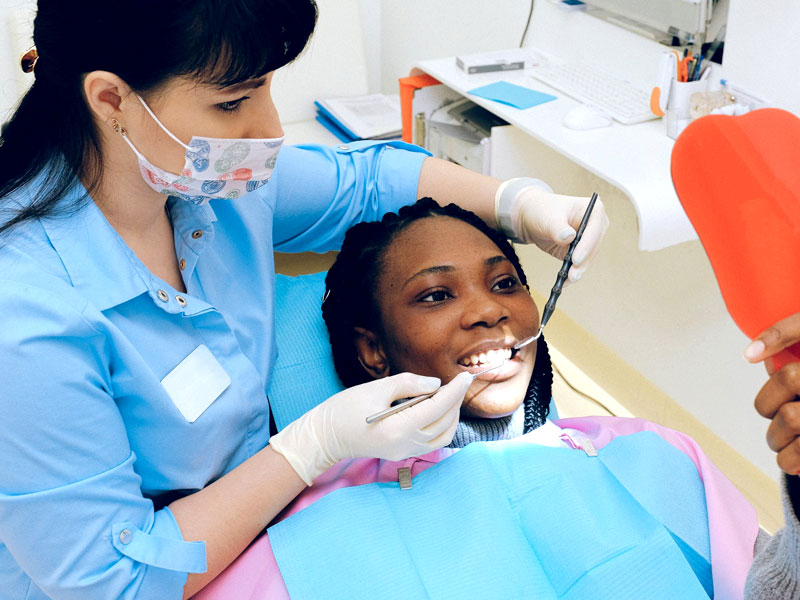
Preventive care is the cornerstone of oral health, focusing on maintaining a healthy smile through proactive measures. By addressing potential issues before they become significant problems, preventive care helps to avoid discomfort, extensive treatments, and unnecessary expenses. Regular dental visits and daily oral hygiene practices are integral to this approach.
Oral Cancer Screening
Oral cancer screenings are vital for the early detection of abnormal tissues, lesions, or growths in the mouth, lips, or throat. Using visual and tactile examinations, dental professionals can identify signs of oral cancer at its earliest and most treatable stages. Routine screenings are particularly crucial for individuals with risk factors like tobacco use, excessive alcohol consumption, or a family history of cancer.
Dietary Counseling for Oral Health
Diet plays a significant role in maintaining strong teeth and gums. Preventive care includes personalized dietary counseling to help patients make informed choices about foods that support oral health. This guidance covers avoiding sugary snacks, increasing intake of calcium-rich foods, and adopting habits like drinking water after meals to reduce plaque buildup and acid exposure.
Night Guards
Teeth grinding, or bruxism, often occurs during sleep and can lead to enamel wear, jaw pain, and even tooth fractures. Night guards are custom-fitted devices designed to protect teeth from the damaging effects of grinding. These guards also help alleviate pressure on the jaw, preventing discomfort and long-term issues like temporomandibular joint (TMJ) disorders.
Q1: How often should I have an oral cancer screening?
A: It’s recommended to have an oral cancer screening at least once a year during your routine dental check-ups. Individuals with higher risk factors may require more frequent screenings.
Q2: What are some signs of oral cancer?
A: Common signs include persistent sores, lumps, or white or red patches in the mouth, difficulty chewing or swallowing, and unexplained pain or numbness. If you notice any of these symptoms, consult your dentist immediately.
Q3: How does diet affect oral health?
A: A diet high in sugar and processed foods increases the risk of cavities and gum disease, while a balanced diet with plenty of fruits, vegetables, and dairy products strengthens teeth and gums. Proper hydration also helps wash away food particles and bacteria.
Q4: Can night guards be used for other purposes besides grinding?
A: Yes, night guards can also be prescribed to address jaw clenching, manage TMJ-related discomfort, or protect teeth during orthodontic treatments.
Q5: What happens if teeth grinding is left untreated?
A: Untreated bruxism can lead to enamel wear, tooth sensitivity, fractures, gum recession, and chronic jaw pain. It may also cause headaches and disrupt sleep quality.
Q6: How do I know if I need a night guard?
A: Common signs include waking up with a sore jaw, frequent headaches, or noticeable wear on your teeth. Your dentist can confirm if a night guard is necessary through an evaluation.
Q7: What foods should I avoid to prevent cavities?
A: Limit sugary and acidic foods like candies, soda, and citrus fruits. Sticky foods, such as caramel or dried fruits, can also adhere to teeth and promote decay if not properly cleaned.
Q8: Is preventive care suitable for all ages?
A: Absolutely! Preventive care is essential for everyone, from young children developing their first teeth to older adults maintaining their dental health. Tailored treatments ensure optimal care for every age group.
Prioritizing preventive care is an investment in your oral and overall health. Schedule regular dental visits and follow personalized recommendations to keep your smile healthy and radiant for years to come!
Address: 934 Hide A Way Road,
Sunnyvale, CA 94086